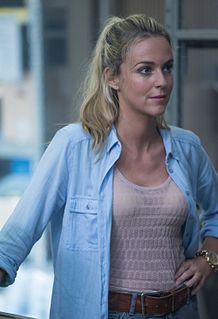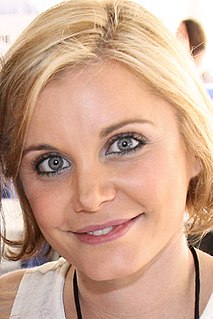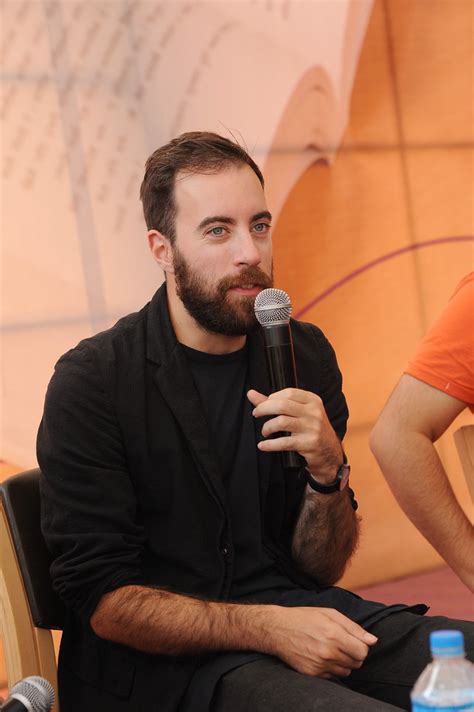A Quote by Irvin D. Yalom
I wrote my first textbook in 1970. It was called 'The Theory and Practice of Group Psychotherapy,' and over the years, many students told me that they enjoyed reading it because there were so many stories in there; often just a paragraph or a page of something that happened in a group session.
Related Quotes
When I was 15 years old, my cousin and I formed a singing group called The Altaires. And, because we became the most popular singing group in the Tri-State area, the rest of the group convinced me I should play the guitar - even though I didn't own one! So what happened was, my stepfather actually made my first electric guitar for me for $23!
I have spent a lot of time arguing that the theory of group selection is not the stupid, pernicious doctrine that many biologists once claimed it to be. The theory is not just conceptually coherent; there are adaptations out there in nature (like reduced virulence in some viruses) that evolved because there was group selection.
I'd seen her name on a call sheet for so many years and been called Jo so many times. If people said Jo in the street, I used to turn round because I was so used to being called Jo for five years on Spooks. You do get so used to being called something. Often, it was someone calling their young son... but sometimes it was people calling after me because they recognised me from the show. So, it was a big deal when it happened and it was quite an emotional end.
My real purpose in telling middle-school students stories was to practice telling stories. And I practiced on the greatest model of storytelling we've got, which is "The Iliad" and "The Odyssey." I told those stories many, many times. And the way I would justify it to the head teacher if he came in or to any parents who complained was, look, I'm telling these great stories because they're part of our cultural heritage. I did believe that.
Da Pak was a group out of Chicago. It was a put-together group. We actually met for the first time at this showcase. They were like 'Yo, you should do a song together.' So we did. It just so happened that the name of the song was 'Wolf Pak.' They said, 'Y'all should be a group called Da Pak, and here's a record deal.'
For many years I wrote nothing but "I will not sleep with Steve Almond" over and over again, page after page à la Jack Torrance in The Shining. Finally, hundreds of psychotherapy sessions and an intense shaman-guided DMT sweat lodge experience led to a breakthrough, and I was able to write about other people I would not sleep with, and also about people I would.
The word of God has provided nine explanatory designations of the heavenly beings... the first group is forever around God and is said to be permanently united with Him ahead of any of the others and with no intermediary. Here there are the most holy 'thrones' and the orders said to possess many eyes and many wings, called in Hebrew the 'cherubim' and 'seraphim'... The second group... is made up of 'authorities,' 'dominions,' and 'powers.' And the third, at the end of the heavenly hierarchies, is the group of 'angels,' 'archangels,' and 'principalities.'
I did a series of classes in psychology (at the institute), .. The students that came to that class had children. And over a period of a few years, they decided they wanted a nursery school, a play group (to watch over their children while they were studying). So in one of the garages that was near where we were having the classes, we established a play group area and the students volunteered to supervise. That eventually led to building a state-licensed nursery school, which was approved by the California department of social welfare.
We all have a tendency to over generalize our individual experiences. After I've published something, I'll meet someone who says, "I'm Haitian, and I don't know this, so it must not be true." Even if we're talking about a work of fiction. I've gotten very angry myself reading many things about Haiti. We're not a monolithic group; no group is. Also, it's important to keep in mind the genre in which we are writing. Fiction is full of invented stories about exceptional people in exceptional situations. Those situations are not always cheery or celebratory.
I know someone who works in a record shop where I live and I'll go in there and he'll play me "Have you heard this single?". Singles by, er the group called The Tights, so an obscure thing... and a group called, I think, er Bauhaus, a London group. That's one single. There's no one I completely like that I can say "Well I've got all this person's records. I think he's great" or "This group's records" it's just, again, odd things.
Politicians often like to suggest that their policies come about through objective thinking, but if you look at British fascists, for example, what you see - what I see - is a group of people coming to the decisions they came to because something happened to them when they were nine-years-old, or because of some deep prejudice that formed in them subsequent to that.
I was a lot dumber when I was writing the novel. I felt like worse of a writer because I wrote many of the short stories in one sitting or over maybe three days, and they didn't change that much. There weren't many, many drafts. That made me feel semi-brilliant and part of a magical process. Writing the novel wasn't like that. I would come home every day from my office and say, "Well, I still really like the story, I just wish it was better written." At that point, I didn't realize I was writing a first draft. And the first draft was the hardest part.






































